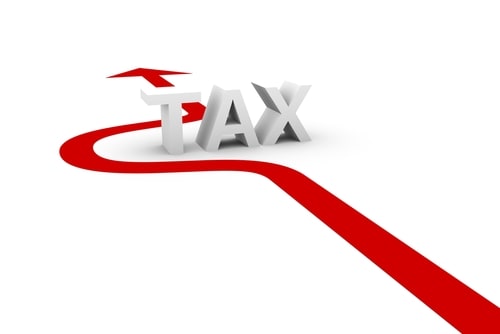In our December 17th article on Bitcoin Tax, we discussed the taxation of Bitcoin from a general and international perspective. That article covers the crypto regulatory and taxations agreement reached between major nations at the recent G20 summit in Argentina. Although the consequences of these agreements will take some time to manifest, they’ll likely alter the tax situation for Australian Bitcoiners. Forewarned is forearmed!
Another subject covered in our previous article is the availability of apps and advisors to assist with the proper filing of crypto related taxes. One such app of particular interest to Australians is Sublime IP, which is a record keeping app specifically for Australia.
Although not specific to Australia, our previous article is again worthwhile reading in that it deals with the respective merits of reporting versus not reporting your crypto transactions to the taxman. There are certain countries where you can get away with not reporting your crypto gains, mostly due to a lack of regulation. However, we wouldn’t recommend dodging your Bitcoin tax dues in Australia. We’ll cover the reasons why it’s probably best to play ball with the Australian Taxation Office (ATO) below.
How Bitcoin and Crypto are Classified in Australia
The Australian Tax Office determined in 2014 that Bitcoin is not legally considered as “money” within Australia. Initially, the ATO ruled that Bitcoin is not comparable to foreign currency for tax purposes. Subsequently, the ATO ruled that Bitcoin is subject to Capital Gains Tax, in much the same manner as commodity or asset investments are liable for the same tax. Therefore, Bitcoin also falls under subsection 108-5(1) of the Income Tax Assessment Act of 1997.
The Australian Taxation Office’s Full Position on Bitcoin

Unlike the tax agencies of many other countries, the Australian Taxation Office has clearly done its homework on Bitcoin. The ATO’s “tax treatment of cryptocurrencies” document covers the subject with detail and clarity. Even relatively obscure issues, such as profits from fork coins, are addressed. If you are unclear on any aspect of how Bitcoin is taxed under Australian law, these web pages make for an excellent and authoritative resource.
The first major point covered by the ATO is that you need to maintain accurate records of your crypto transactions. If you’re an active trader, most exchanges will keep a record of your trades but logging private transactions will require work from you. Although most Bitcoin wallets will keep a date and time of when coins were sent or received, you’ll still need to match this information with Bitcoin’s historical price in Australian Dollars. The Trading View website is helpful for this purpose.
How Bitcoin is Taxed in Australia
Various taxes are applied to crypto in Australia. The average user, who doesn’t mine or run a business which accepts crypto, is most likely to encounter Capital Gains Tax or Income Tax, depending on how frequently they exchange crypto.
Here’s some more detail on how and when these taxes are applied:
Capital Gains Tax (CGT)
CGT applies to all investments. If you acquire crypto then later sell it for a profit, you will be liable for CGT. CGT is also levied on the exchange of one crypto asset for another. Note that you only pay CGT when you sell. The term “sell” in this context includes the following taxable events:
- Exchanging crypto for fiat (eg. selling BTC for AUD),
- Exchanging crypto for another crypto (eg. exchanging BTC for ETH), or
- Exchanging crypto for goods or services (eg. buying alpaca socks with BTC).
As for capital losses, these may also be claimed. If the value of your crypto holdings declines or your coins are lost or stolen, you can offset the loss against any other capital gains which contribute to your overall income tax bill. Remember that CGT is not a separate tax per se, but rather the consideration of any and all investment profits which are added to your overall income tax liability.
Based on ATO data, here are the current rates of income tax for Australia-resident individuals (with the 2% Medicare levy excluded):
Taxable Income | Tax Rate |
0 – $18,200 | 0 |
$18,201 – $37,000 | 19c for each $1 over $18,200 |
$37,001 – $90,000 | $3,572 plus 32.5c for each $1 over $37,000 |
$90,001 – $180,000 | $20,797 plus 37c for each $1 over $90,000 |
$180,001 and over | $54,097 plus 45c for each $1 over $180,000 |
So, let’s say you’re an individual earning below $18,199 per year. Your income tax bill is thus $0. However, let us further say that you bought Bitcoin some time ago at $1,000 and it’s now worth $5,000. You decide to sell the BTC for AUD, and must now add the $4,000 profit to your taxable income. This places you into the 2nd bracket, incurring a 19% tax on that $4,000.
Based on such considerations, you may wish to delay taking profit on your crypto investments if doing so would place you into a higher tax bracket.
Further Capital Gains Tax Considerations
The ATO has sensibly decided not to apply CGT whenever a chain fork occurs on a coin which you hold. However, should you claim and sell the fork coins, you will then be taxed under CGT as if you had acquired them for a cost of zero. In other words, all proceeds from the sale of fork coins will be considered as profit.
Further note that individuals and small businesses may be eligible for a 50% reduction in CGT on assets they hold for over one year. That’s certainly one way to encourage crypto hodling!
For more on Capital Gains Tax, see the ATO’s extensive coverage of the subject.
Income Tax
Income Tax applies to any profits derived from crypto-related business activities. These activities include:
- Trading of cryptocurrency for fiat or other cryptos. This certainly applies to all those trading crypto via an online exchange.
- Mining of cryptocurrency will incur income tax on the profits. Staking of cryptocurrency most likely falls under the category of “mining,” although it’s not specifically addressed by the ATO.
- Running an exchange or brokerage service also means you must pay income tax on your profits. Additionally, you will be charged GST, as detailed below.
Note that the difference between trading and investment, which incur Income Tax and Capital Gains Tax respectively, is mostly a matter of duration. For example, if you buy Bitcoin and hold it for a year or longer before selling, that would be considered investment. If you buy Bitcoin and hold it for a few hours or days before selling, that’s viewed as trading.
General Sales Tax (GST)
GST is levied in the following instances:
- When you run a business which accepts crypto in exchange for goods or services, you will add GST to your goods or services in exactly the same way you would if accepting Australian Dollars.
Note that the ATO used to apply GST to all crypto purchases, but thankfully ended this practice on the 1st of July 2017. Thus, the ATO did away with the harsh double taxation imposed upon those who purchased Bitcoin (and other purchases) in order to buy goods or services with them.
The ATO is Cracking Down on Crypto Tax Dodgers

The ATO is getting serious about collecting tax on crypto and has declared that reporting is compulsory. The Australian Transaction Reports and Analysis Centre (AUSTRAC) has been appointed to supervise crypto businesses, such as exchanges. Although AUSTRAC is primarily concerned with the prevention of money laundering and terrorist financing, they’ll certainly use their position to collect information on the clients of crypto services, monitor their transactions, and follow up on any suspected tax avoidance.
However, all this is not to say that there aren’t many legitimate ways to significantly decrease your tax burden. Gift allowances, life insurance policies, setting up trusts and corporations – all these and more options are worthy of exploration. Tailored advice from a good accountant or tax lawyer will prove invaluable in this regard.
Disclaimer
This article is intended for information purposes only, and should not be taken as legal or tax advice. The author is neither a tax professional nor a British citizen. We recommend that you conduct your own research into the matter; the ATO site contains a great deal of helpful information on this subject and should be considered as authoritative. Kindly consult with a tax specialist, such as an accountant or tax lawyer, should any questions or difficulties arise.




